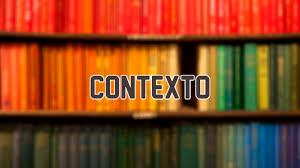The Coming Together of Technology and Law

Technology advances quickly. Laws need to stay up to date. Governments encounter difficulties when trying to regulate new advancements. Legal gray areas are formed by artificial intelligence, blockchain, and online platforms. Legislators need to focus on topics such as data privacy, cybersecurity, and digital transactions.
Managing Data Privacy
Privacy of data is a significant issue in the current day. Technology enables the gathering of large quantities of personal data. Governments are implementing regulations to safeguard the data of their citizens. Nevertheless, staying abreast of technological advancements can be challenging. GDPR has established a universal benchmark in Europe, however, additional legislation is necessary. Finding a balance between fostering innovation and safeguarding privacy continues to be difficult.
Laws and regulations regarding cybersecurity
Cybersecurity is extremely important. As cyber threats become more complex, legislation needs to adapt. Governments create rules to safeguard data and infrastructure. All the nuances needed to know how to bet and test your luck with other applications. Also must adhere to these regulations, as required by law. It is essential to cooperate on a global scale. Cybersecurity dangers transcend boundaries, necessitating vital international agreements.
Intellectual Property Rights in the Digital Era
The laws governing intellectual property are altered by the digital era. The sharing and copying of content is made simple by the internet. This brings up worries about safeguarding the rights of creators. Laws must find a middle ground between promoting innovation and ensuring fair compensation. Technology companies advocate for more adaptable intellectual property regulations. Creators advocate for increased safeguards. This discussion will influence the direction creativity takes in the future.
The Function of Artificial Intelligence in Legal Judgments
Artificial intelligence is employed in making legal judgments. AI has the ability to rapidly examine extensive datasets. It helps with legal research, predicting cases, and analyzing contracts. Nevertheless, AI brings up ethical and legal issues. There is a danger of bias in AI algorithms. Governments need to set regulations for AI in order to guarantee fairness in legal situations.
Blockchain and e-contracts
Blockchain is changing the way digital contracts are handled. Smart contracts will be activated when conditions are met. This reduces the need for intermediaries, like lawyers. However, legal problems do arise. Governments need to supervise and uphold digital contracts. As blockchain technology becomes increasingly common, legal frameworks must evolve accordingly.
Monitoring and individual freedoms
Technology increases the government’s ability to conduct surveillance. Legislation is necessary to safeguard individual freedoms. Governments claim that surveillance is essential for ensuring security. Nevertheless, it is important to safeguard privacy rights. Laws need to find a middle ground between ensuring security and protecting individual freedoms. These legal decisions are influenced by public opinion.
Internet platforms and freedom of expression
Social media platforms play a key role in communication. They bring up legal concerns regarding freedom of speech. Governments find it challenging to control content while still allowing for freedom of expression. Businesses such as Bet22 can navigate through these intricate regulations. Rules differ from one country to another, creating difficulties for international business activities. Continuously managing the balance between regulation and freedom is a constant process.
Controlling the use of Artificial Intelligence in the Legal System.
AI is becoming more and more common in legal procedures. It assists with activities such as researching and analyzing contracts. Nevertheless, AI is capable of generating results that are not impartial. Regulation is imperative because of this. Legislators must guarantee that AI is employed lawfully. The proper regulation of the legal system is crucial for maintaining public trust.
The relationship between technology and the ability to access justice
Technology has the potential to enhance the availability of justice. Access to legal assistance is improved with online legal services and virtual courtrooms. Nevertheless, not all individuals have the privilege of using these instruments. This leads to a gap in access to technology. Governments need to close this gap in order to guarantee fairness. Having technology is essential for ensuring fair access to justice.
Ethics and the Use of Technology in Policing
The police use high-tech tools like surveillance gear and facial recognition technology. These tools can improve safety, yet they also raise ethical concerns. Misuse could lead to violations of privacy and unfair treatment. Precise guidance is necessary. Finding a middle ground is essential in maintaining both public safety and civil liberties.
The Global Spread of Technology Regulations
Technology functions on a worldwide scale, while laws are specific to individual regions. This leads to difficulties in overseeing global corporations. Different legal systems result in disputes. For instance, Bet22 may encounter varying regulations in every country. Global collaboration is necessary. Aligning legislation safeguards the rights of users on a global scale.
Summary
The combination of technology and law brings both challenges and opportunities. Governments should establish structures that foster innovation and safeguard citizens. As technology advances, laws need to keep pace. This connection will determine the future of society, ensuring that progress benefits everyone and protects their rights.






